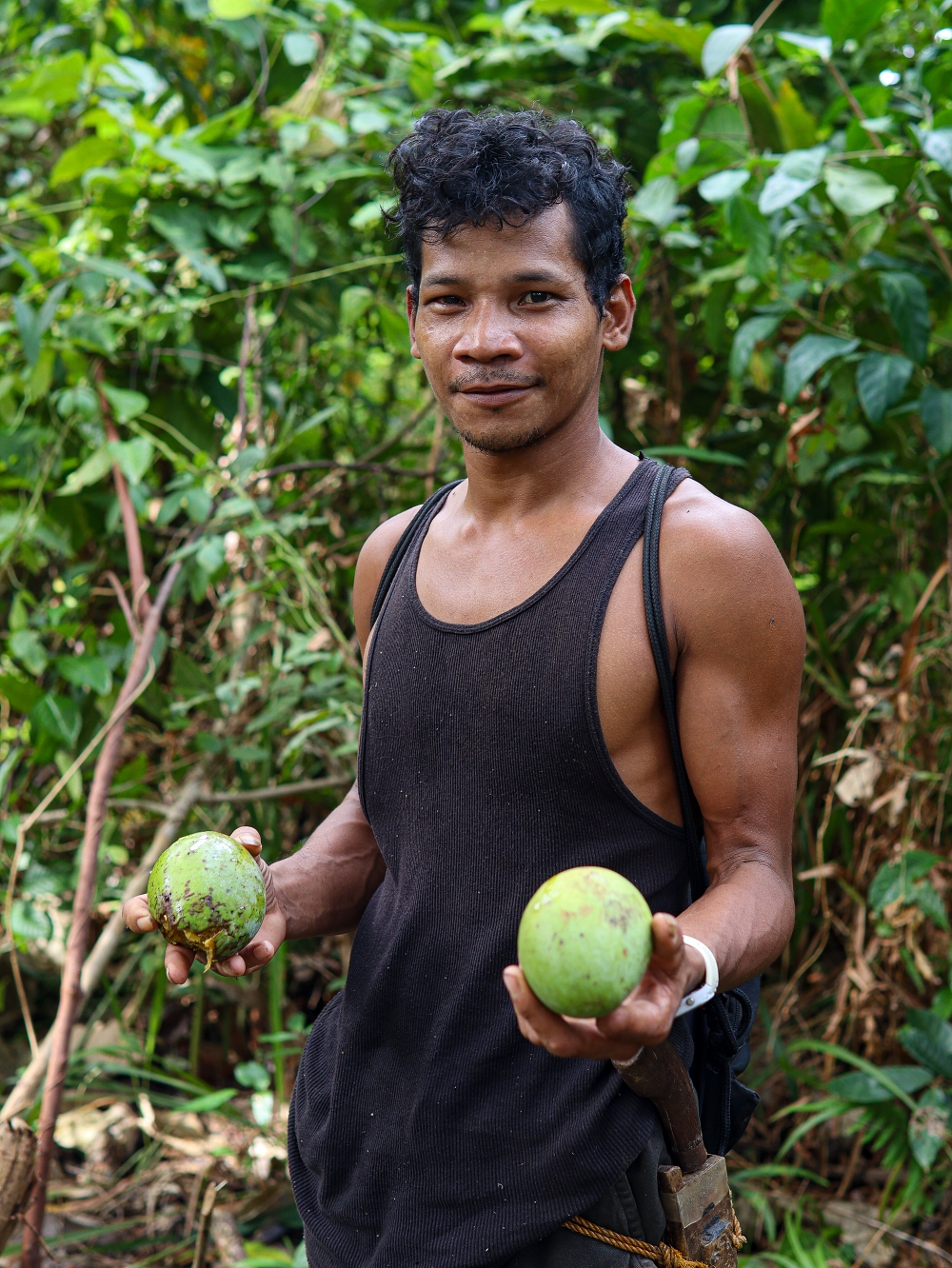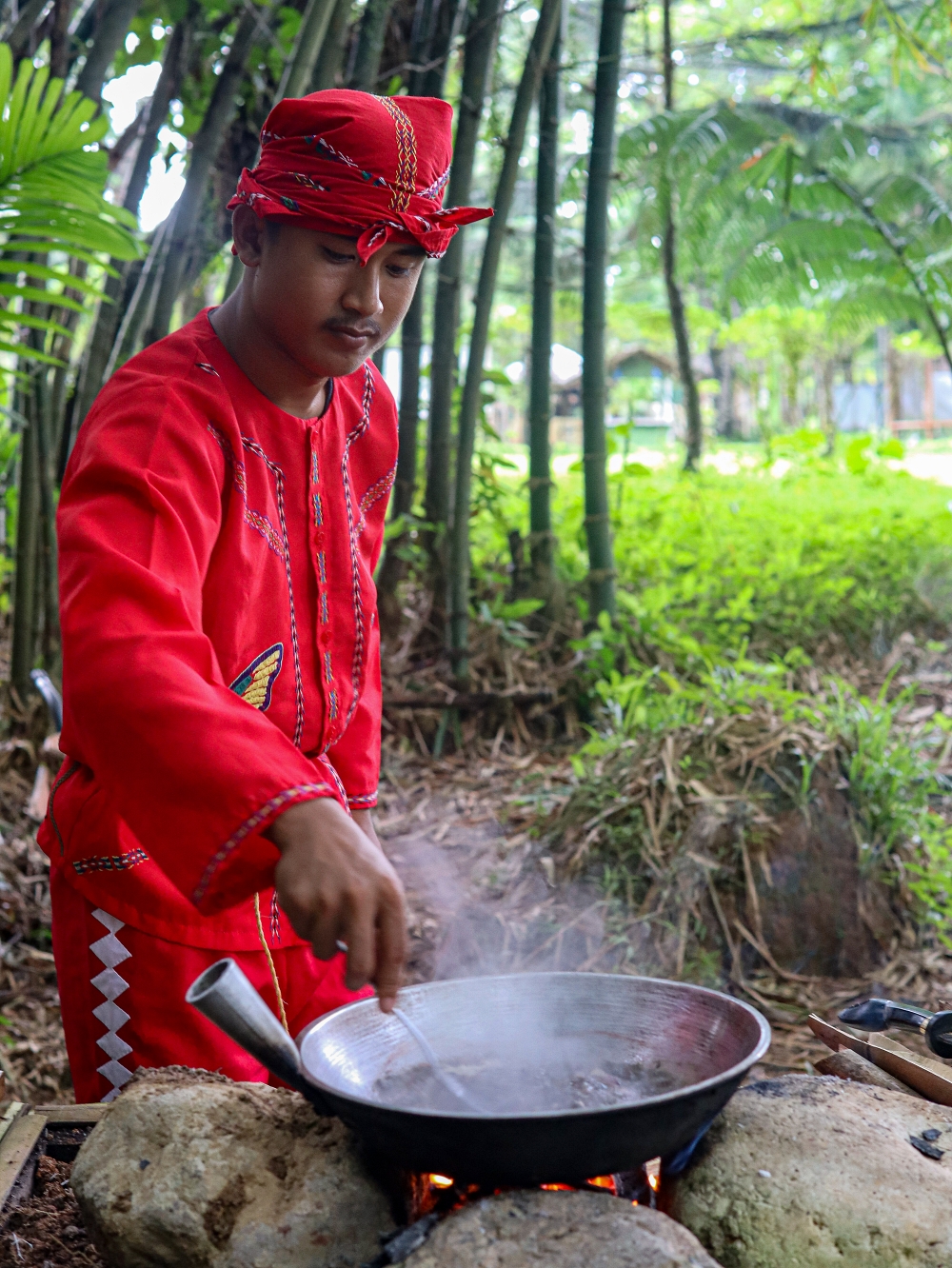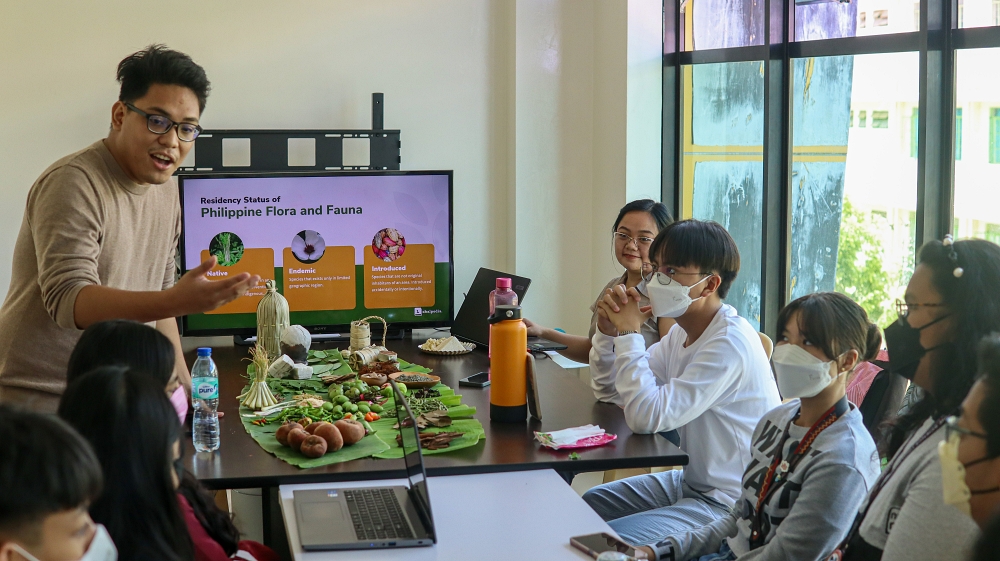The Filipino youth has a place in food heritage preservation
While my love for food can be traced back to my childhood, I began deliberately documenting ingredients when I was 23 years old in my hometown: San Jose, Mindoro.
I started interviewing my mother, the seniors in our neighborhood, market vendors, and farmers. Many of them were surprised that someone as young as me was so fascinated by a topic that most people think is not interesting for the youth.
From my interactions and observations with them, I learned many things. I discovered that bagbagkong, a wild vine with edible flowers and pods, can be cooked in various ways such as okoy, bulanglang, or ginisa. I learned how to make jam from the fruit of a native tree called kalumpit and how to properly select kamansi, a relative of langka, for cooking because if it is too mature, it has a cottony texture that is not good for ginataan.
Every insight—from cooking techniques and the seasonality of produce to associated beliefs tied to food—I wrote down word for word, not missing any information because each detail contributes to a larger narrative. I supplemented this firsthand knowledge with insights from books, online sources, and further conversations, deepening my understanding that food is not merely sustenance but a reflection of who we are, where we come from, and where we are headed.
What began as an exploration in my hometown evolved into Lokalpedia, an online archive dedicated to Philippine ingredients and culinary traditions, which is an effort to reintroduce the stories of our heritage and celebrate our food culture in modern times. Launching this project as a young food heritage advocate was admittedly not easy. Initially, I had to rely on my own limited resources from my work as an accounts manager at a public relations agency to keep going. I realized there was a big task ahead: to visit other places and share my discoveries with more people.
Armed with my belief that this endeavor can make a difference in how we see our food and help local communities, I took a leap of faith and left my corporate job to pursue the project full-time. It is actually scary to pursue something full of uncertainties. But I realized along the way that doing the right thing takes you to places and brings you closer to wonderful people and unimaginable experiences.
As Lokalpedia grew, so did the support from those who shared my commitment. I have since explored countless unfamiliar regions, from forests and mountains to bustling markets and serene farms. It’s physically exhausting and emotionally taxing. But everything becomes bearable when locals welcome you to their community, to their homes, to their kitchens. I feel privileged to witness the ingredients and dishes in situ and hear the stories of those who nurtured and prepared them.
Throughout my journeys, I've also had the privilege of meeting extraordinary individuals like Kuya Pukong from the Tagbanwa community in Palawan, who serve as a living repository of knowledge on edible plants. With a remarkable ability to identify numerous species with just a glance, he once shared that while he didn't complete formal schooling, the forest itself became his teacher.

Another remarkable person I've encountered is Rennel, a passionate Tumandok youth. He's dedicated to preserving his community's culture, adept in traditional hunting techniques and cooking ancestral recipes. He can even identify heirloom rice varieties by merely touching them.

They are a testament that many, though not as visible as celebrity chefs or well-known advocates, are making invaluable contributions to our food heritage and biodiversity. While Lokalpedia is often hailed as a trailblazer, it is simply one component—like an ingredient—in the larger collective effort to preserve our traditional foods, ensuring they remain on our tables. We can't lose these foods because when we do, it’s not just the aroma, flavor, texture, and taste that are lost, but the legacy of our ancestors, our history, and parts of our identity.
In food heritage preservation, we often hear that the youth should continue the traditions. But more than just carrying the baton, I believe that we’re more empowered to tell the story of our food heritage and inspire millions to take on an even bigger mission: to be part of realizing the whys and not merely knowing the hows; to genuinely believe in the cause and not blindly advocate for it; and to actually be driven by passion and not by obligation.
Food is not merely sustenance but a reflection of who we are, where we come from, and where we are headed.
My dream is to have a nation with people who are more connected to its food heritage and celebrate its culinary identity. But we can't have that future if the people who produce our food are not supported, if indigenous communities’ rights are not protected, and if the land and sea where our food is sourced are barren and polluted.

Achieving this vision demands that we raise our voices on issues impacting our food system. We should also actively engage in social and environmental matters, as they are intrinsically linked to our food heritage. Just like Kuya Pukong, Rennel, and Lokalpedia who have proven that the youth has its own place in food heritage preservation, you too can make a meaningful impact.
The future of Filipino food depends on each and every one of us—on our willingness to embrace change, challenge convention, and redefine the boundaries of what is possible. We can be stewards of our land, advocates for our people, and purveyors of our culture regardless of our age, educational achievements, and ethnic backgrounds. We just have to be bold, creative, and unapologetically Filipino.


